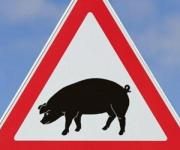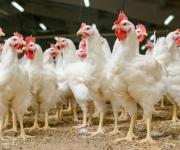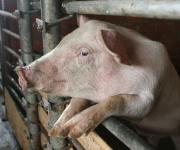Although it is not yet known how the ASF will spread in the coming months, it is clear that the scale of the potential growth in demand and the potential risk of infection may never have been more significant than it is now, pigua.info reported.
The spread of African swine fever in China, and more recently in Belgium (near France and Germany), has significantly changed the prospects for the pig industry worldwide. Prospects for improving export demand have increased after recent events, while the potential for spreading the disease globally has grown exponentially.
As of September 18, 2018, 20 cases of African swine fever (ASF) in seven provinces were registered in China. Based on the widespread occurrence of cases reported to date, it is unlikely that the disease has been contained, and it is expected that new outbreaks will be reported soon. To hold the spread of the virus, China has restricted the transportation of live animals in seven provinces where they have recorded the ASF virus, as well as in 11 neighboring provinces.
While the long-term consequences are unclear, already today restrictions on the transportation of animals in China have led to significant disruptions in the supply of animals and / or pork. Excess pork puts pressure on the markets as producers rush to market healthy animal meat. At the same time, prices in urban centers, along with regions in eastern and southern China, where supplies of pork products are limited, increased by 40%, as transportation bans were introduced. Rabobank predicts that in the coming months a very serious shortage of pork can appear on the Chinese market.
The identification of ASF in the south of Belgium caused serious concern. The danger is that the pig population in the affected region is large enough, and if the disease affects the livestock, it will be difficult to contain its spread. Rabobank expects European officials to take the toughest biosafety measures, but if wild boars transfer the virus to pork exporting countries, such as France or Germany, world trade could be significantly affected. Any disruption of exports from leading European exporting countries will lead to a shortage of pork in Asia.
This forecast gives grounds for some optimism for North American producers and processors. For American pig producers, like Canadian and Brazilian pig producers, the disruption of pork production in key regions will open up export opportunities. At first, this is likely to be a “panicky” purchase by customers concerned about the availability and cost of future deliveries of pork. By the beginning of 2019, Rabobank expects the markets to be more comfortable with outbreaks of ASF and, therefore, import requirements. Much depends on the countries of Western Europe, which now supply about 35% of world pork exports. If the virus continues to spread in Europe through a wild pig population, analysts believe that it can create significant export demand for American, Canadian and Brazilian pork, as well as significant demand for competing proteins (beef, chicken and seafood).
However, efforts to restore safe supplies are likely to take months. Meanwhile, Chinese consumers are likely to shift from more expensive, scarce pork to alternative proteins such as chicken and even beef. In the affected production areas, Rabobank expects increased biosecurity to ensure continued access to export markets.














 Лобіювання інтересів тваринників в органах виконавчої влади
Лобіювання інтересів тваринників в органах виконавчої влади Участь в науково-практичних заходах Асоціації із залученням європейських експертів світового рівня
Участь в науково-практичних заходах Асоціації із залученням європейських експертів світового рівня Щотижневий огляд тенденцій та прогнозів розвитку тваринницької галузі
Щотижневий огляд тенденцій та прогнозів розвитку тваринницької галузі